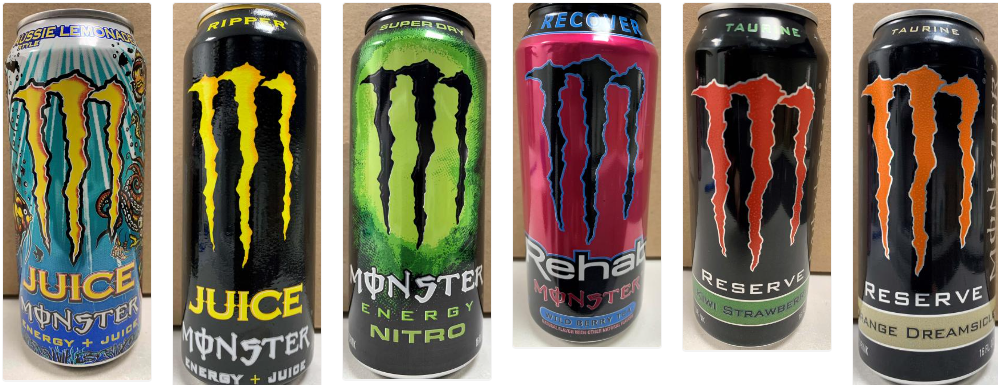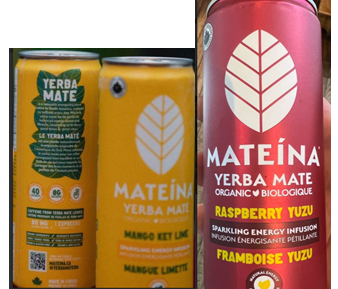According to the CFIA, 5002589 Ontario Inc. has recalled Monster Caffeinated Energy Drinks from the Canadian marketplace due to reported failure to comply with Canada’s Caffeine content and labeling requirements properly. Monster branded Caffeinated Energy Drinks are sold in 16-fluid ounce (~473 ml) cans. All flavors that contain Caffeine and do not have bilingual (English and French) labeling are affected. This is another recall by the CFIA related to caffeinated drinks. The products were distributed nationwide.@ https://recalls-rappels.canada.ca/en/alert-recall/monster-brand-caffeinated-energy-drinks-recalled-due-caffeine-content-and-labelling




